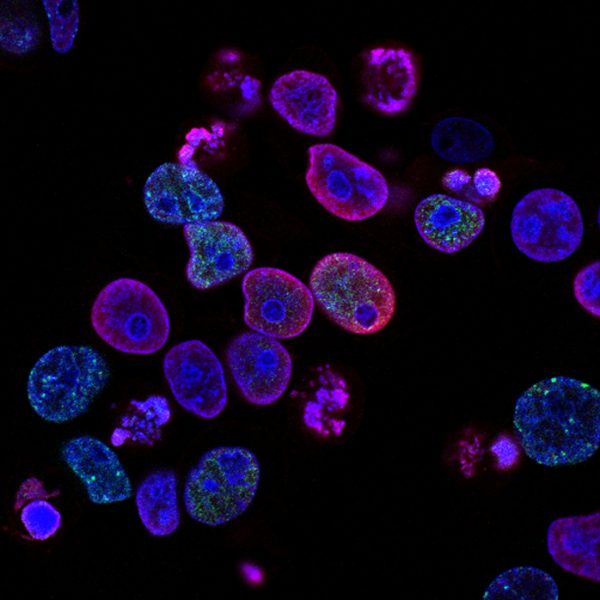Genetic engineering is beating some cancers

Daisy Scott, Online Deputy Editor, discusses research into the role of genetic engineering and CAR T-cells in cancer treatments.
In today’s society we face numerous diseases, yet it is cancer which probably hits home the most frequently. I’m sure we all either know or are friends with someone affected by the terrible disease. The statistics say that 1 in 2 of us will have cancer at some point in our lives. Despite this scarily high number, there is still no one cure for cancer that gets everyone through to see the other side of it with the survival rates of different types of cancers being dramatically different. However, there is now research being conducted using genetic engineering to make it a more survivable disease.
Our immune system is an incredible thing without many of us even realising it. It not only fights off bacteria and viruses every day, it also kills of most cancer cells long before they can cause a threat. However, sometimes cancer is able to slip through. In the attempt to restore the effectiveness of the immune system when cancer is able to slip through the net, there is an emerging star in the shape of CAR T-cell therapy.
In the attempt to restore the effectiveness of the immune system when cancer is able to slip through the net, there is an emerging star in the shape of CAR T-cell therapy.
CAR T-cell therapy relies on T-cells, cells which patrol our bodies killing infected or cancerous cells. T-cells are able to detect these types of cells using a receptor that protrudes from their surface and binds to a displayed fragment of a protein on the outside of infected cells. If you add the right receptor to T-cells, you can make them target anything you want, including cancer.
To do this, a person’s own T-cells are extracted and genetically modified to express a chimeric antigen receptor. This receptor is made up of three proteins, one that recognises the cancer cell target and two which boost the T-cells activity. Doctors then multiply these cells before returning them to their owner where the cells seek out and destroy the cells of that target protein.
If you add the right receptor to T-cells, you can make them target anything you want, including cancer.
Unfortunately, CAR T-cell therapy is not a golden bullet. The main issue is that CAR T-cells only work against blood cancers and not solid tumours which means that they would not work for the majority of people. Also, the immune attack on cancer cells that the therapy prompts can trigger potentially fatal side effects.
However, all is not lost! CAR T-cell therapy is constantly being improved. One of the big issues is that with very ill people, it often is not possible to extract enough T-cells and donor T-cells see every cell in the recipient’s body as foreign and start attacking them. That’s where gene editing comes in; it can be used to knock out the genes involved in recognising cells as foreign in addition to adding the receptor. This mean that “Universal CAR T-cells” can be used to treat many different people with the same kinds of cancer.
This therapy is definitely a step in the right direction when it comes to increasing the survival rate of cancer, but more research is still needed to come up with a treatment that it suitable for all cancer patients with a 100% remission rate. Genetically engineered immune cells are going to be a big part of our future and it is a future that is looking brighter.


